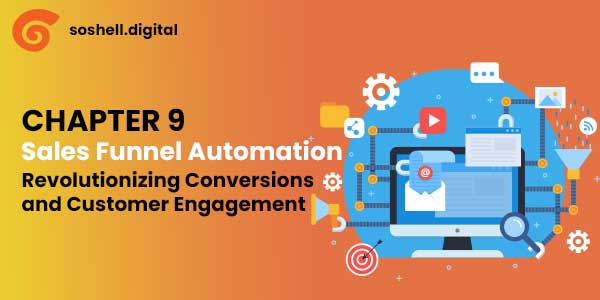Enhancing Conversion through Data Insights
Introduction
In today’s fast-paced digital landscape, automating various aspects of your sales funnel is no longer a luxury; it’s a strategic necessity. Sales funnel automation streamlines processes, increases efficiency, and enhances the overall customer experience. In this article, we’ll explore the myriad benefits of automating key elements of your sales funnel, including email follow-ups and lead scoring.
The Power of Sales Funnel Automation
Efficiency and Consistency
- Email Follow-Ups: Automating email sequences ensures that leads receive timely, consistent, and personalized communications, nurturing them through the funnel.
- Lead Scoring: Automation tools assign scores to leads based on behavior and engagement, allowing sales teams to prioritize high-potential prospects efficiently.
Time Savings
- Reduced Manual Tasks: Automation eliminates repetitive tasks, such as data entry and lead qualification, freeing up valuable time for your sales and marketing teams.
Enhanced Personalization
- Behavioral Triggers: Automation can trigger responses based on user actions, delivering highly personalized messages and content.
Improved Lead Management
- Lead Tracking: Automation systems provide real-time insights into lead behavior, helping teams understand where prospects are in the buying journey.
- Lead Scoring: Prioritize leads automatically, ensuring that your sales team focuses on those most likely to convert.
Reduced Churn and Increased Retention
- Customer Nurturing: Automation enables ongoing engagement with existing customers, reducing churn rates and increasing customer lifetime value.
Data-Driven Decision-Making
- Analytics: Gain valuable insights from data collected during the automation process, informing future strategies and optimizations.
Automation in Action
Email Marketing Automation
- Drip Campaigns: Automatically send a series of emails to leads based on their behavior, moving them through the funnel systematically.
- Personalization: Tailor email content and timing to individual preferences, increasing engagement.
Lead Scoring
- Behavioral Tracking: Assign scores to leads based on actions such as website visits, email opens, and form submissions.
- Prioritization: Focus sales efforts on leads with the highest scores, improving conversion rates.
Chatbots and AI
- 24/7 Engagement: Chatbots can provide instant responses to common queries, ensuring leads receive timely information even outside business hours.
- Lead Qualification: Automated chatbots can qualify leads, ensuring sales teams engage with prospects who meet specific criteria.
CRM Integration
- Seamless Data Flow: Connect your CRM with marketing automation tools to ensure all lead data is up-to-date and shared across teams.
Overcoming Challenges
While sales funnel automation offers numerous advantages, it’s essential to address some common challenges:
- Over-Automation: Too much automation can make interactions feel robotic. Strive for a balance between automation and human touch.
- Data Accuracy: Automation relies on accurate data. Regularly clean and update your contact databases.
- Testing and Optimization: Continuously test and refine your automated sequences to ensure they remain effective.
Conclusion
Sales funnel automation is a game-changer for businesses seeking to streamline processes, boost efficiency, and drive conversions. By automating tasks such as email follow-ups and lead scoring, you can deliver a more personalized, efficient, and data-driven customer experience. Embracing automation isn’t just about saving time and resources; it’s about creating meaningful, long-lasting relationships with your leads and customers, ultimately leading to increased sales and business growth. In today’s competitive landscape, harnessing the power of automation is a strategic imperative.
